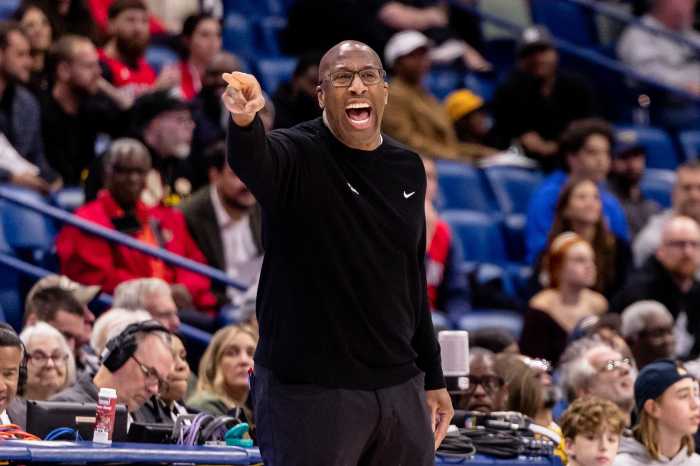By Prem Calvin Prashad
That the president expresses hostility toward immigration is no secret; that he would condemn it in such vulgar terms, if true, is unsurprising. While the country grapples over the controversy, with some rushing to defend remarks that the president refuses to acknowledge were made, for immigrants and organizations agitating for immigration reform, that is not the story that matters most this week. Their fight predates this administration and has a human face.
Ravi Ragbir, a Trinidadian immigrant, arrived in the United States in February 1991. He overstayed his visitor’s visa but became a green-card holder three years later. He has since married a U.S. citizen and started a family.
Stemming from a 2001 arrest and conviction of conspiracy to commit wire fraud (a charge Ragbir denies and has challenged), he was made a priority for deportation. He was immediately placed in indefinite immigration detention and was freed only when the Supreme Court declined to hear his case. Since his release, he became the executive director of the New Sanctuary Coalition, a collection of interfaith congregations that agitate for immigration reform.
Ragbir has existed in limbo, protected by “prosecutorial discretion,” which advised immigration enforcement to avoid deporting nonviolent offenders with significant community ties to the United States. This trend reversed under the new administration, which considers every undocumented immigrant a priority for “removal.” Now, many of these immigrants with families face separation from spouses and their children. Ragbir’s supporters decry the lack of prosecutorial discretion in this and many cases that have placed long-term U.S. residents at risk of deportation for minor offenses.
Last week, protests erupted in nearby Foley Square after Ragbir’s detention during a nearby routine check-in. As he is a highly visible immigration activist, his gathered supporters had been anticipating the detention since his stay of deportation had expired. Council Members Jumaane Williams of Brooklyn and Ydanis Rodríguez of Manhattan were also arrested in the ensuing fray. Mayor Bill de Blasio has blamed federal authorities, including Immigration and Customs Enforcement, for the increased tensions.
Lost in the shuffle over the president’s remarks was the decision to end Temporary Protected Status, or TPS, for 200,000 Salvadoran immigrants. Another figment of the broken immigration system, these individuals were spared deportation for humanitarian reasons, and afforded a status “less than” refugee, and the issue had passed through several presidential administrations. Sadly, all it took was an administration that approaches immigration with elements of sadism to throw their lives into disarray. Of those that applied for protection in 2001, they have been given the order to leave by Sept. 9, 2019.
The far right, eager to rationalize the move, have touted the economic benefits of the forced repatriation of hundreds of thousands of people, though the country will lose the 17 percent of its gross domestic product created by remittances. History has also proved that the mass resettlement of people has only ever caused misery. El Salvador, a country with a smaller population than New York City’s, wracked by poverty and drug violence, must now prepare to absorb a sudden influx of 200,000 people. TPS recipients from Honduras and Haiti will face a similar struggle in the coming months.
Almost all “sides” of the issue decry the system as broken. There are far too many immigrants to simply deport, and the ones who are here lack the pathway to legalize their status. Removing prosecutorial discretion is a petty and short-sighted attempt to appear “tough” on immigration.
On Monday, the congregation of the Judson Memorial Church on Washington Square Park led the New Sanctuary Coalition on a Jericho walk, a type of silent march and protest, against the deportations. Including Ragbir, two of the organization’s leaders are detained, sparking suspicions of political retribution. The organizers invoked the Rev. Dr. Martin Luther King Jr.’s movement of nonviolent resistance and committed themselves to continuing to resist the deportation agenda.




































